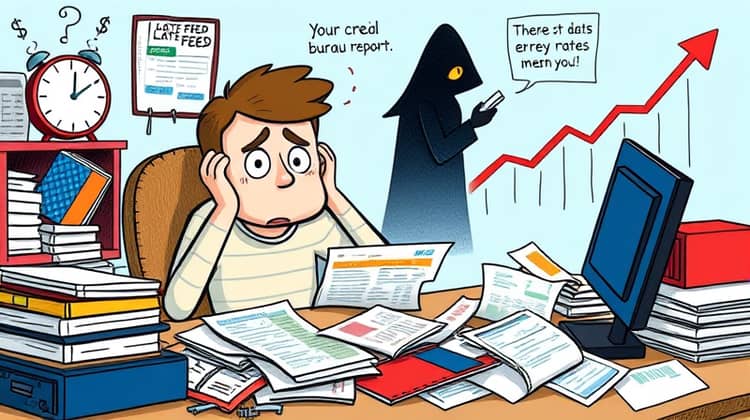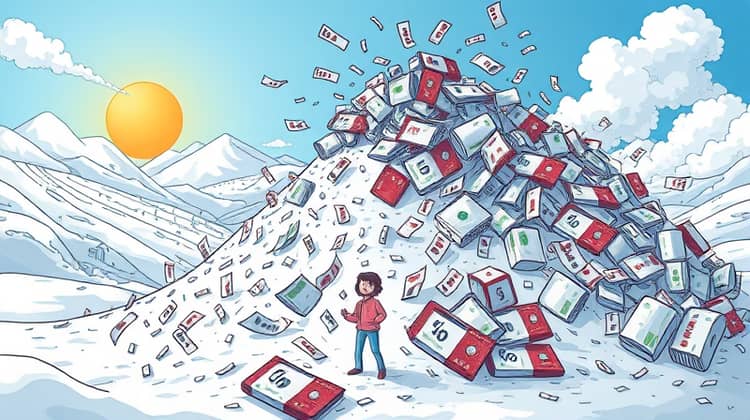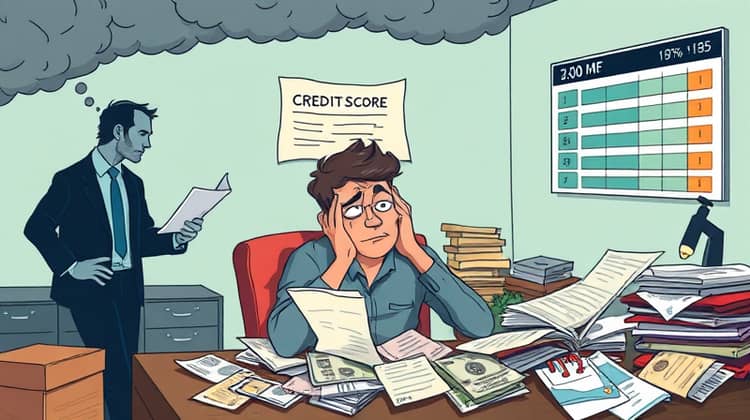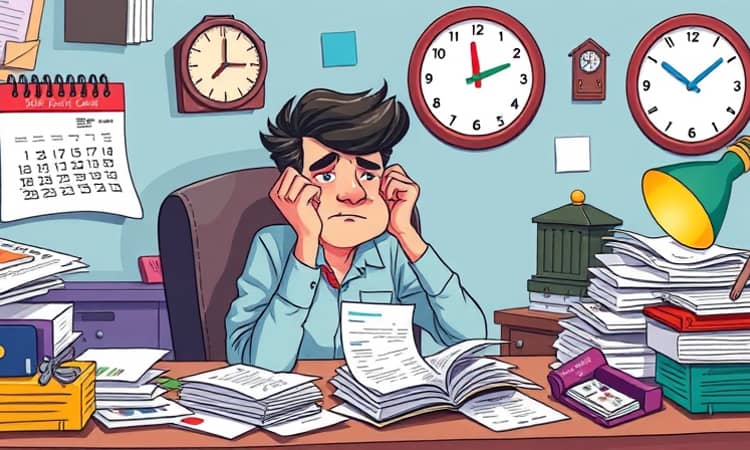Missing a credit card payment can be a stressful experience for many people. The reality is that life can sometimes get in the way, whether it's due to unexpected expenses, forgetfulness, or other priorities taking over. However, the consequences of neglecting to make a payment can ripple beyond just the immediate stress of dealing with late fees.
The ramifications can affect your financial health and credit score, which are both critical aspects of your overall financial identity. Understanding what happens when you miss a payment can help you navigate this situation more effectively, minimizing the potential damage and allowing for recovery.
In this article, we'll explore the immediate consequences of missing a credit card payment, how it affects your credit score, the potential for accumulating debt, and key steps you can take to recover going forward. Let's delve into each aspect in detail.
Immediate Consequences of Missing a Payment

The first immediate consequence of missing a credit card payment is the late fee that your credit card issuer will impose. Typically, this fee can range from $25 to $40 for the first missed payment, depending on the issuer's policies and your payment history. This is a quick and tangible penalty that adds to your financial burden.
Second, if your payment is significantly overdue (usually 30 days or more), it could lead to your account being reported to credit bureaus. This report can negatively impact your credit score, which we will discuss further in the next section.
Additionally, missing a payment may prompt your credit card issuer to increase your interest rate, particularly if you have a history of late payments. This means that your future purchases will cost more, leading to further financial strain. It's important to note that even a single missed payment can create a ripple effect on your overall financial situation.
- Late fees applied to your balance
- Potential reporting to credit bureaus after 30 days
- Increased interest rates on future purchases
How Your Credit Score is Affected

When you miss a credit card payment, one of the most significant impacts is on your credit score. Credit scores are calculated using various factors, and payment history is the largest component, accounting for 35% of your total score. This means that one missed payment can cause a noticeable decrease in your score, depending on your previous credit history.
Moreover, the longer you wait to make the missed payment, the greater the impact will be on your credit score. Delinquent accounts can stay on your credit report for up to seven years, making it extremely important to address any missed payments as soon as possible.
- A missed payment can lower your score by 100 points or more.
- Payments are reported as late after 30 days, worsening the score damage.
- Persistent late payment history contributes cumulatively to a poor score.
Rebuilding your credit score following a missed payment takes time and consistent effort. In addition to making all future payments on time, you can also take advantage of other strategies such as maintaining low credit utilization ratios and diversifying your types of credit to improve your score over time.
The Snowball Effect: Accumulating Debt

Missing a credit card payment can also trigger a snowball effect that leads to accumulating debt over time. This effect occurs when late fees, interest rate increases, and the inability to pay off your balance become compounding factors that make it increasingly challenging to stay on top of your finances.
As late payments accrue interest, the outstanding balance continues to grow. This situation can quickly spiral out of control, leading to a situation where one missed payment leads to a string of missed payments and accumulating debt, making it difficult to recover financially.
Additionally, reliance on credit cards to cover basic expenses can exacerbate the situation, as consumers may find themselves charged higher interest on balances that they cannot pay in full due to the financial strain of penalties and missed payments.
- Late fees increase your outstanding balance
- Higher interest rates make payments more difficult
- Increased reliance on credit for essentials leads to further debt
It's essential to recognize the signs of accumulating debt early and take proactive steps to mitigate further financial distress, including seeking financial counseling or exploring debt management strategies.
Less Direct Consequences

Aside from the immediate financial penalties and credit score impact, missing a payment can lead to less direct consequences that may affect your overall financial health. For instance, having a lower credit score can make it harder to secure loans or favorable interest rates in the future, limiting your options in terms of financial flexibility.
Additionally, inconsistent payment history can lead to potential job risks, particularly in industries where credit checks are common. Employers may view poor credit management as a sign of irresponsibility, which could harm your chances of landing a desired position.
Lastly, the stress and anxiety associated with missed payments can take a toll on your mental health, creating a vicious cycle of financial worries and emotional distress that can impact both your personal and professional life.
How to Recover From a Missed Payment

Recovering from a missed payment is not an impossible task, but it does require diligence and accountability. The first step is to make the missed payment as soon as possible, even if it’s partial, as this can reduce late fees and minimize damage to your credit score. It's also wise to contact your credit card issuer, as they may offer grace periods or assistance to help ease the situation.
Further, establishing a budget helps ensure timely payments in the future. Tracking due dates and setting reminders can also prevent missed payments from reoccurring.
- Make the missed payment promptly
- Contact your credit card issuer for assistance
- Create a budget to manage future payments
Moreover, consider setting up automatic payments or alerts to help in managing bills. Over time, with disciplined financial behavior and a focus on timely payments, your credit score can recover, and you can regain financial stability. Remember, every small step counts towards improving your financial health.














